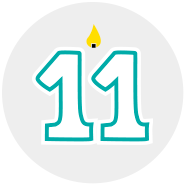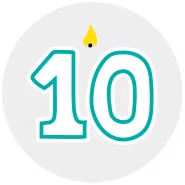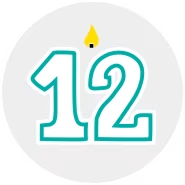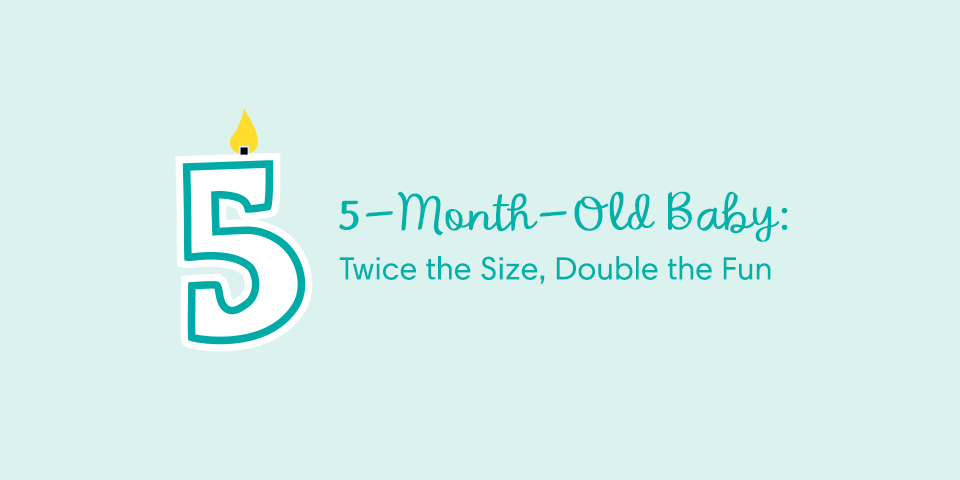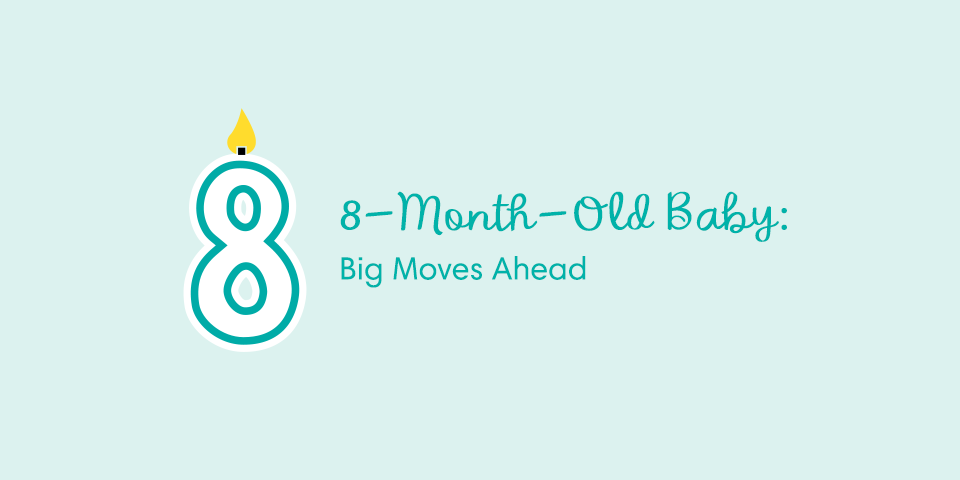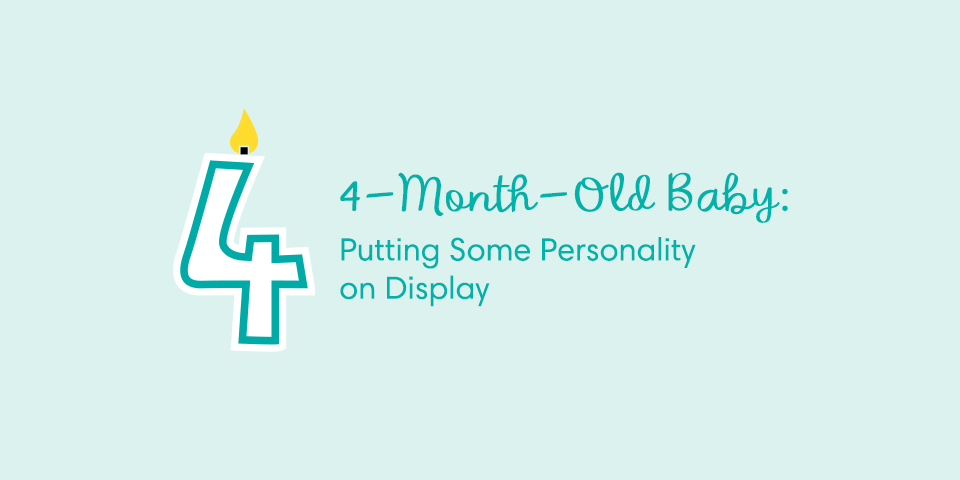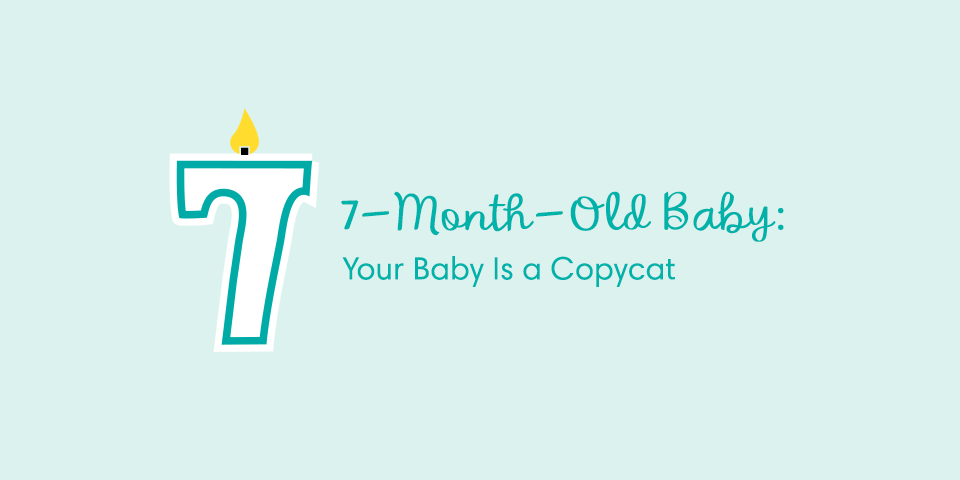Your 11-Month-Old Baby's Development and Milestones
Your 11-month-old baby is becoming more active and mobile every day, and their curiosity is leading them to seek out new experiences and master new skills. Read on to learn more about what your baby is up to and how you can encourage their development with playtime, sleep, and feeding tips.
Baby Development Milestones
There’s a lot to look forward to this month as your 11-month-old baby’s curiosity draws them to new and exciting experiences. They’re exploring the world through their sense of touch, and they’re probably up on their feet in full cruising mode. Make sure their surroundings are safe, and then watch as they make their latest discoveries.
Growth and Physical Development: Forging Ahead
As your baby approaches their first birthday, they’ll have likely tripled their birth weight. It's normal for their growth to slow a little around this time. A big reason for this is that they’re moving more than ever—crawling, scooting, playing—so they’re burning more calories.
You may be wondering how much an 11-month-old “should” weigh.Your baby’s healthcare provider will your best resource for questions or concerns about your baby’s weight or their overall health. At each checkup, the provider will use infant growth charts to track your baby’s progress and make sure they are doing well.
Your little one's first steps are an exciting milestone, but don't be surprised if you notice their feet turning outward a bit in a way that looks the opposite of pigeon toe. This is called “out-toeing,” and it’s common in little ones as they start learning to walk. Your baby hasn't spent much time on their feet yet, so the ligaments of their hips are loose, causing their legs and feet to rotate outward. At some point during the months after their first birthday, those ligaments will tighten, and you'll see their feet pointing forward.
Senses: Touch and Texture
Your mobile 11-month-old engages all their senses, including touch, to learn and grow. If you've babyproofed your home, you can let them explore safe spaces under your supervision. Your baby will enjoy opening drawers and cabinets and trying to make sense of the new objects they discover.
Keep in mind that most of your baby’s finds will likely end up in their mouth as they investigate, so safety is key. You can provide interesting items for them to touch and experience by showing them some of the objects in and around your home, from a smooth countertop to soft, backyard grass.
Also, baby toys for your 11-month-old don't need to be expensive or complicated to capture their attention and boost their brain development. They may be delighted with any or all the following:
Movement: Casual Cruising
You've seen your baby's motor skills, balance, and coordination improve over the past few months; now, your 11-month-old baby may be getting ready to take their first steps. They’ve been building strength in their leg muscles by doing things like scooting, crawling, and pulling themselves up to stand. Now or sometime soon they may be ready to take their first few steps while holding onto furniture for support. When this happens, your little one is officially cruising!
Make sure you've covered any sharp edges and properly secured any furniture that could fall on your baby as they hold onto it and watch them go. You can also hold their hands for support while they work those little legs in new and exciting ways. When they get a little more confident and their balance improves, they may let go of the furniture and see what they can do on their own.
Cognitive Development: Bilingual Babies
If your family is bilingual, take the opportunity to expose your baby to a second language if you haven't already. Little ones have a remarkable ability to learn two languages if they hear them both consistently. Of course, they may be confused from time to time (this is a normal part of language development), but in general, learning two languages from a very young age just means they'll be even more proficient in both.
Just as your baby’s speech abilities are improving, so are their listening and comprehension skills. By now, they’re probably able to follow simple instructions from you, such as when you ask them to wave bye-bye or reach for a toy. They’re also learning that all those objects they’ve been shaking, banging, and dropping have functions, and you may see them start to use certain objects correctly, whether it's drinking from a cup or holding a phone.
Activities for Supporting Your 11-Month-Old Baby’s Development
At this time, your baby is more inquisitive than ever, and they’re likely driven by the confidence they get from their increased mobility. Continue to encourage them to explore their environment and learn about the world.
One way to do that is to spend time playing with your baby and to provide toys suitable for 11-month-old babies.You'll want to choose playthings that spark your baby’s curiosity and help foster skills like hand-eye coordination. Blocks and soft toys are great, as well as more mundane household items like wooden spoons and containers.
In addition to playing together, good things to do with your 11-month-old include going on outings to a local park, library, or even a children’s museum where there will be plenty of new objects to touch, see, and experience. Let your baby roam, under your supervision, and you'll see them thrive as they discover new and interesting things.
Feeding Your 11-Month-Old Baby
As your baby approaches their first birthday, you may notice that your little one's appetite isn't quite as hearty as it was in the past few months. Their growth rate is slowing down, and they’re distracted by a variety of fun new activities beyond eating. They’re now getting more nutrients from solids and drinking less breast milk or formula, and they’re starting to have definite preferences.
Food options and meal ideas for your 11-month-old baby are a bit broader these days as your baby can now hold onto a sippy cup and may have some success feeding themselves with small finger foods. Now is a good time to have your curious and sociable baby join you and your family at the dinner table for meals in their own high chair. Make sure they’re completely strapped in and position the chair far enough away from the table so that they won’t be able to push against it and tip over.
Wondering what to feed your 11-month-old? Here’s an example of a daily menu/feeding schedule for your baby that includes soft table foods and breast milk or formula. Appropriate portions are listed to give you an idea of approximately how much food to give your 11-month-old.
How Much Sleep Does an 11-Month-Old Baby Need?
With so much new activity filling your 11-month-old baby’s days, they now need between 9 and 12 hours of sleep each night, plus two naps per day. Naps typically last about 30 minutes to 2 hours each.
It's possible that your baby may wake up and cry at night, even if they were previously able to sleep through the night. The tears may be due to separation anxiety and can make nighttime a bit of a challenge. If you find they’re doing their best to resist bedtime or are waking up during the night, keep in mind it's only their natural response to the stress of being away from you.
It's helpful to have a consistent bedtime for your 11-month-old and to follow a bedtime routine, which might include a soothing bath, reading a story, or gentle massage to help them relax. If your baby cries at any point during the night, wait a few minutes and then go in quietly to make sure they’re OK without offering any rewarding cuddles or extra feedings.
What to try when your baby wakes during the night:
It may be frustrating when your baby’s not sleeping as well as they used to, but, in time, they’ll learn to soothe themselves and fall asleep on their own again.
To help you track your 11-month-old’s nap and sleep schedule, download the Smart Sleep Coach app by Pampers. Cocreated by pediatricians and sleep experts, this easy-to-use app can help you during sleep training or when you might encounter difficulties like sleep regression, which is when you baby’s not sleeping or having trouble staying asleep.
A Day in the Life of Your 11-Month-Old Baby
Every baby’s routine is different, but here’s an idea of what a typical daily schedule can look like for you and your 11-month-old baby.
Your Baby's Health: Preventing Household Accidents
Your little one is on the go these days, and although they’re likely enjoying their newfound mobility, they won't escape getting some bumps and bruises from time to time. Falls, burns, and minor cuts and scrapes are among the most common household injuries, and unfortunately, they can happen despite your best babyproofing efforts.
Keep an eye on your baby at all times and make sure they’re only exploring areas of your home that you've thoroughly babyproofed. If you have stairs in your home, make sure you’ve installed baby gates to help prevent falls. Cover all electrical outlets, keep appliances and breakables out of reach, and be careful when carrying hot drinks or food near your baby to help prevent burns.
You’ll also want to make sure you, your partner, and any other caregivers are trained in infant CPR and know how to clear your baby's airway in a choking situation, and that you have local emergency contact numbers stuck on the fridge and saved in your phone. Knowing you’re prepared will help put your mind at ease and allow you to focus on having fun with your baby.
Development Tips for Your Baby This Month
Check out some guidelines and ideas to help foster your 10-month-old baby’s development:
Items You Will Need This Month
Here are baby gear items that you might like to purchase this month if you haven’t already:
FAQS AT A GLANCE
Babies this age need at least 750 calories per day, with approximately half coming from breast milk or formula. They should have about 24 ounces or breast milk or formula per day.
Your Life as a Parent: Your Social Life
Your own health and happiness are critical to being the best parent you can be, and you may find that your social life has changed (or vanished) since welcoming your baby. Your life may be different now, but it's still important to spend time with people you care about and who can offer you some much-needed support.
Try to connect with other parents in your area through playgroups or other interest groups. Local libraries and community centers are great resources for finding such groups.
Also, busy lifestyles can make it tough to carve out time for yourself. Make it a priority to do something you enjoy on a regular basis, whether that's a pursuing a hobby, exercising, or catching up with old friends. You may decide to plan a get-together with friends and bring your baby along or get a sitter and enjoy some adult conversation without your little one. Your friends will love catching up with you, as well as seeing your baby, if that’s what you decide to plan.
Party Planning Fun
You may be getting ready for your little one's first birthday now by planning a special party for family and friends. It's wonderful to celebrate this exciting day (and your success as a parent!) but do try to minimize any stress. Try not to hold yourself to ideas of social-media-inspired party perfection. Your baby may or may not love being in enjoy crowds and a festive atmosphere.
You may want to choose a theme for your baby's party to help get you started. This could be as simple as a color scheme, or it could include something your baby loves like trains, animals, or princesses. Establishing a theme will make choosing any decorations and refreshments a little bit easier. Whatever you choose, consider having a separate cake for your guests and one for your baby to smash for those priceless first birthday photos. Take lots of pictures, and, above all, enjoy this celebration with your baby—you've both earned it!
Checklist for This Month
How We Wrote This Article The information in this article is based on the expert advice found in trusted medical and government sources, such as the American Academy of Pediatrics and the American College of Obstetricians and Gynecologists. You can find a full list of sources used for this article below. The content on this page should not replace professional medical advice. Always consult medical professionals for full diagnosis and treatment.
- American Academy of Pediatrics, Caring for Your Baby and Young Child: Birth to Age 5, 7th ed. (New York: Bantam Books, 2019).
- healthychildren.org. “6 Quick High Chair Safety Tips.”
- healthychildren.org. “Safety for Your Child: 6 to 12 Months.”
- Kids Health. “Childproofing and Preventing Household Accidents.”
- Kids Health. “Communication and Your 8- to 12-Month-Old.”
- Kids Health. “Feeding Your 8- to 12-Month-Old/”
- Kids Health. “In-Toeing.”
- Kids Health. “Movement, Coordination, and Your 8- to 12-Month-Old.”
- Kids Health. “Preventing House Fires.”
- Kids Health. “Sleep and Your 8- to 12-Month-Old.”
- Kids Health. “Your Baby's Growth: 11 Months.”
- healthychildren.org. “Ear Infection Information.”
- National Child and Maternal Health Education Program. “Moms-to-be and Moms.”
